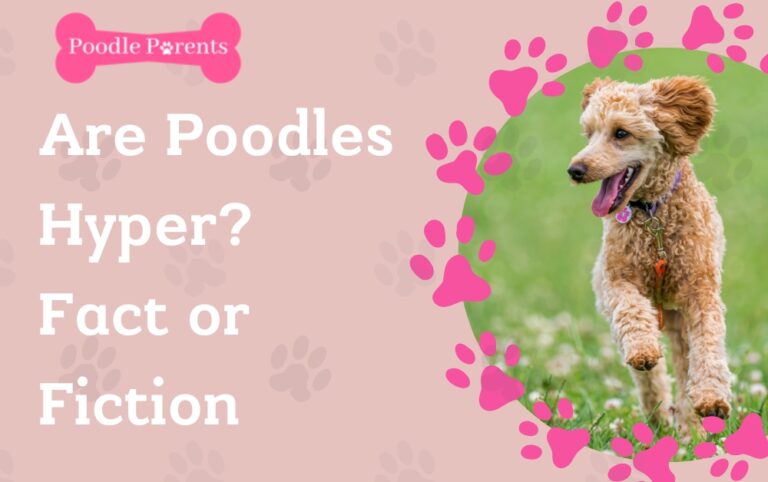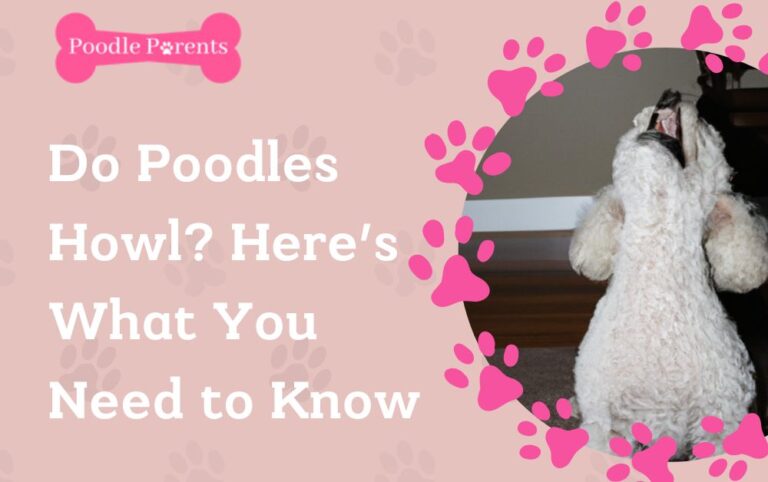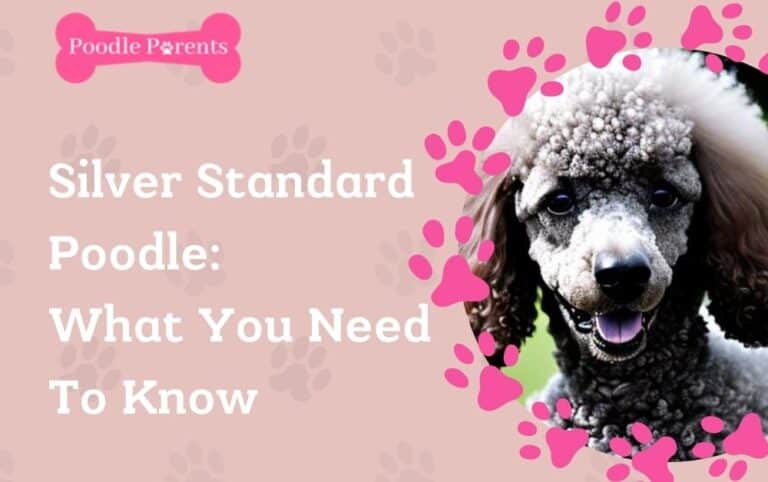Why Does My Dog Huff? The Top Reasons

Have you ever wondered why your canine companion huffs? You’re not alone. Many dog owners have noticed their pup making this strange sound and have no idea what it means. Well, we’ve got the answers to Why Does My Dog Huff?
There are a few surprising reasons why dogs might huff that many people don’t know about.
In this article, we will explore why exactly your furry friend is doing this behavior — from communicating with other animals to showing empathy towards humans.
We’ll also discuss strategies for managing and modifying any unwanted behaviors associated with huffing.
Our goal is to help you better understand the unique language of dogs so that you can build an even stronger bond with your four-legged pal.
Why Does A Dog Huff And Puff?
Panting and puffing are normal behaviors for dogs, but why does my dog huff? Understanding the reasons behind your pup’s huffs can provide insight into their body language and emotions.
A deep breath or sigh of relief might feel like a stress reliever to humans, and it can be the same for our canine companions.
If your dog is making a loud snorting noise, it could be experiencing a reverse sneeze. This occurs when air gets trapped in the throat, causing them to make an unusual sound, which many pet owners mistake as a sign of distress, a huff, or a puff.
This type of breathing should not be cause for alarm if accompanied by other signs of relaxation, such as yawning or licking lips.
Huffing noises may also occur when your dog wants to show another animal that he means no harm or doesn’t want confrontation.
If you’re out on a walk with your pooch and come across another dog, watch for any changes in posture or behavior from either party; if one starts making a soft huffing noise, this could indicate that they don’t want conflict.
Your pup may use these sounds to try and defuse tense situations without resorting to aggression – something all pet owners should strive to encourage!
So while there are several reasons why your dog might make a huffing noise, rest assured that it generally isn’t anything serious.
Knowing what kind of context your pup is using huffs in will help you better understand their body language so you can respond appropriately – after all, communication between pets and people is key!
Is A Sigh The Same As A Huff?
Have you ever noticed your dog huffing? Dogs may huff for various reasons, some of which are surprising.
Knowing the difference between a sigh and a huff is important so that if you notice it, you can properly take care of your pup.
A good way to tell the difference between a sigh and a huff is by listening closely when your dog makes the sound. A sigh is usually quiet and calm, indicating that your pet is happy and content.
On the other hand, if your dog doesn’t appear relaxed or isn’t responding normally after making the noise, then it could be an indicator that something else is going on with them.
Huffs can also signify fear or anxiety in situations like being around new people or animals they don’t recognize.
If your pup makes this type of noise in these types of scenarios, try giving them some space and providing reassurance until they feel more comfortable again.
Knowing why your dog might be huffing can help you better understand their reactions and ensure that they stay healthy and safe.
Dogs Love: Showing Affection In Different Ways
A dog’s and its owner’s connection is as strong as the bond between two lifelong friends. It’s not just an arrangement of convenience but rather a relationship that can offer companionship, loyalty, and love.
Dogs may huff to express their deep-seated emotions in ways only their owners understand. Dog owners must be willing to read their dog’s behavior to comprehend what they are trying to communicate.
Different breeds have distinct personalities which will dictate how they show affection:
Some dogs like being petted on top of the head or behind the ears, while others prefer cuddling on the couch with you.
Smaller dog breeds might gravitate towards snuggles, whereas larger breeds relish chasing after balls or sticks.
Other signs of devotion include tail wagging, licking your hands/face, resting their head on your lap, or following you from room to room around the house.
When it comes down to it, all dogs really want you to spend time with them and give them plenty of attention – this could mean playing fetch outside or simply sitting together quietly on a lazy afternoon.
Understanding why your furry companion does certain things can help build a stronger connection between you both, so when your dog starts huffing, don’t ignore it – take some time to figure out what your pup is feeling and why he/she has resorted to such behavior!
Can You Stop Your Dog From Huffing?
No one wants to see their pup huffing, but it’s important to understand why they might be doing it.
Below is a table that outlines some of the common reasons why your dog could be huffing and how you can take steps to address the issue.
| Reason | Action | Result |
| Anxiety/Stress | Take Your Dog To The Vet or Pet Behaviorist | Relaxation & Comfort by medication or training techniques. |
| Illness | Notice That Your Dog Is Making Unusual Sounds From The Back Of Their Throat | A Professional Veterinarian Can formulate a diagnosis & Treatment Plan. |
| Boredom | Provide Toys Or Mental Stimulation For Your Pet | Redirection Of Energy Away From Huffing Behavior. |
If you notice that your dog is making unusual sounds from the back of their throat or if they are constantly yawning, these may be signs that your dog is anxious or stressed.
In this case, taking them to the vet for an exam would be beneficial to rule out any underlying medical conditions.
If no physical ailment is found, then there are other ways to help reduce stress levels, such as providing toys or mental stimulation for your pet.
This will allow them to redirect their energy away from huffing behavior, which can often occur when dogs are bored.
In addition, huffing could also be related to territorial behavior, so addressing this early on can prevent further issues down the line.
Pay attention to what triggers your pet’s huffing episodes, identify whether another animal or person is entering their space without permission, and create boundaries accordingly.
With proper guidance, understanding, and patience, you should have success in stopping your dog from huffing over time.
Now let’s see how we can tell if our furry friend feels overwhelmed by stressful situations.
How To Tell If Your Dog Is Stressed: Signs To Watch For
We all know that dogs are our best friends and loyal companions, but sometimes it can be hard to understand why your dog is huffing.
Is he upset? Or maybe feeling anxious? If you want to get to the bottom of it, there are a few signs you should look out for when assessing whether or not your pup is stressed or anxious.
First, notice that your dog is making unusual noises such as whining, barking excessively, or even growling. These sounds could indicate something’s wrong with your pup – physically or mentally. It would be wise to take him/her to the vet immediately, just in case!
Additionally, watch for any changes in his/her behavior; if they seem overly aggressive towards other animals or people, this may be a sign that your dog is anxious or stressed.
Another thing you should watch out for is how often your dog experiences huffing episodes. If it seems like the frequency has increased significantly over time, then this could mean something else is going on with them emotionally.
In addition to taking them to the vet, consider talking to a professional animal behaviorist who can help you better understand why your dog might be experiencing these symptoms and provide advice on appropriate solutions.
It’s important to pay attention and stay alert, so you’ll be able to recognize when something isn’t quite right with your canine companion.
By understanding what causes stress in dogs and watching for signs of anxiety, you can ensure that you and your pet remain happy!
Is Dog Sighing A Sign Of Stress?
Is your dog huffing? It could be a sign of stress. Dogs that are feeling overwhelmed or anxious may express their feelings by sighing. If you hear your pup making this sound, they’re trying to say something important.
It’s important to take your dog’s body language seriously to understand how they’re feeling. When dogs experience distress, they can show physical signs such as shaking and tail-tucking.
They might also make a deep breathy noise known as ‘dog sighing.’ This type of vocalization usually occurs after a long day when the pooch is exhausted from playing or running around all day.
By taking note of these behaviors, we can better understand what our furry friends are communicating through body language.
Dog sighing can indicate many things, but it often means the pup isn’t stressed or anxious about something in its environment but content and happy.
The more aware you become of your dog’s behavior, the easier it will be for you to recognize when they are distressed and intervene if needed.
Dog owners should pay attention to any changes in their pet’s mood or behavior to identify potential sources of anxiety and help reduce them before they cause further distress to the animal.
How To Reduce Stress In Dogs?
It’s easy to forget that dogs don’t always know how to express their emotions. When it comes to a dog’s huffing, it can be difficult for us as owners to pinpoint the exact cause of this behavior and figure out how to reduce stress in our pups.
That’s why we must take the time to observe our furry friends and ensure any changes or signs of fear are addressed immediately.
Dog training is one way you can help your pup feel more comfortable when they start exhibiting anxiety symptoms. By teaching them basic commands such as sit, stay, come, etc., you give them something else to focus on instead of whatever may be causing them distress.
Additionally, providing ample exercise opportunities will go a long way toward reducing stress levels in dogs; getting outside and playing fetch with your pooch is an excellent distraction therapy!
In addition to taking proactive steps like these, it’s best if you get into the habit of regularly checking up on your canine companion – whether by giving them extra attention or scheduling regular trips to the vet – so that potential problems can be identified early on and dealt with quickly before they become bigger issues down the line.
Pups And Emotions: How Dogs Know What You’re Feeling
You’ve heard your dog huff before, and how much emotion dogs can express can be surprising. Dogs don’t always speak the same language as humans but often communicate their feelings through body language. So why does your pup huff? It could mean a few different things.
First of all, they’re trying to get your attention. If you’ve been ignoring them for too long or giving them commands that are difficult to understand, dogs may resort to huffing to draw some focus back onto themselves. Sometimes this is also used when a pup wants something specific from you – like food or playtime!
Dogs often use huffs, sighs, and other noises to convey comfort or joy too. When we’re petting our furry friends, and they let out a happy sigh, it’s usually because they feel content and relaxed being with us.
Conversely, if something isn’t going so well, such as causing the dog distress, the pup might release an unhappy sound instead.
Humans and dogs have many shared emotions, so understanding what your pooch feels help build strong bonds between pet parents and their pups.
The next time you hear your dog huffing away at home, try interpreting its meaning by looking into those big puppy eyes – chances are there’s more than meets the eye!
Concerned About Your Dog? Warning Signs To Watch For
Sometimes, when we look at our furry friends, it’s hard to tell exactly what they think. One way that dogs communicate their emotions is through huffing.
If your pup starts huffing, you might wonder why this sudden behavior change has occurred. While huffing could be a sign of something serious, it can often mean your dog feels uncomfortable or anxious about something.
Pay attention to the context surrounding your pup’s huffs and note if they start making huffing noises regularly. Huffing is one-way dogs express their feelings without being aggressive toward others or themselves.
It may also indicate discomfort with an unfamiliar environment or person – if an irritant is too far down the throat and past the nasal cavity. Some form of vocalization will usually ensue as a warning sign.
If your pup’s huffing becomes frequent, watch for other signs of distress, such as excessive panting or pacing around nervously.
It’s always best to talk to your vet about any changes in behavior, so they can offer advice on how best to support your pup during these times.
Conclusion – Why Does My Dog Huff?
The bottom line is that huffing can signify many things, from contentment to stress. We, as pet owners, need to pay attention and observe the behavior of our furry friends so we know what they are communicating to us.
I think it’s safe to say that most dog parents want to ensure their pup feels secure and loved but also that they can express themselves freely.
It may seem like an exaggeration when I say that every single time your pup huffs or sighs, it could mean something different! But in reality, this isn’t too far off from the truth.
Dogs communicate with us through body language more than any other way. So if you’re ever concerned about your pup’s huffing—pay close attention: you never know what messages he might be trying to send!
As we continue to learn more about dogs and how their emotions play into our lives together, it becomes increasingly clear just how important communication is between people and pets.
When we take the time to understand why a dog might be huffing, we’re taking steps towards building stronger relationships with them—and creating happier homes all around.
If you enjoyed this article: Why Does My Dog Huff? Surprising Reasons, please leave a comment below.





